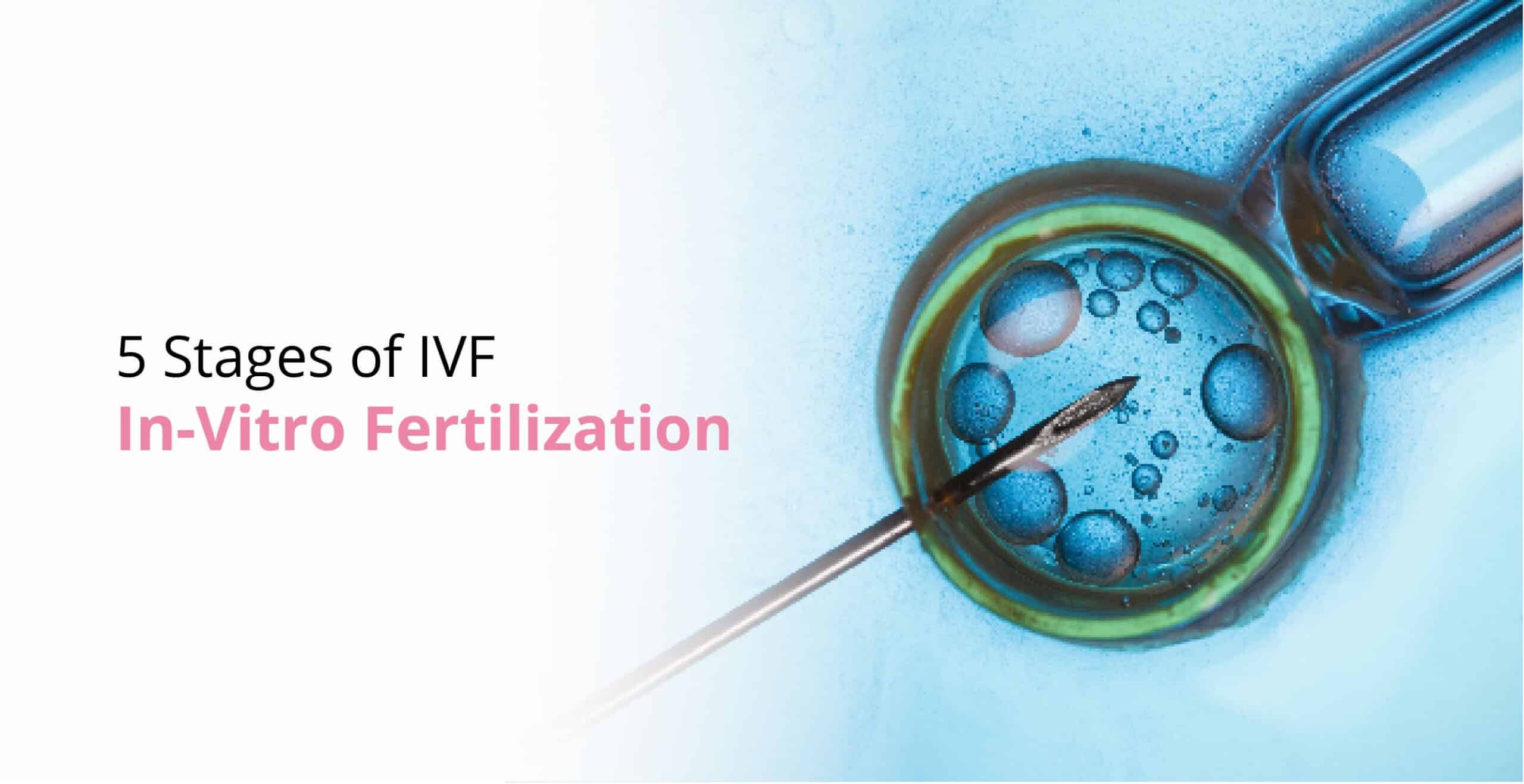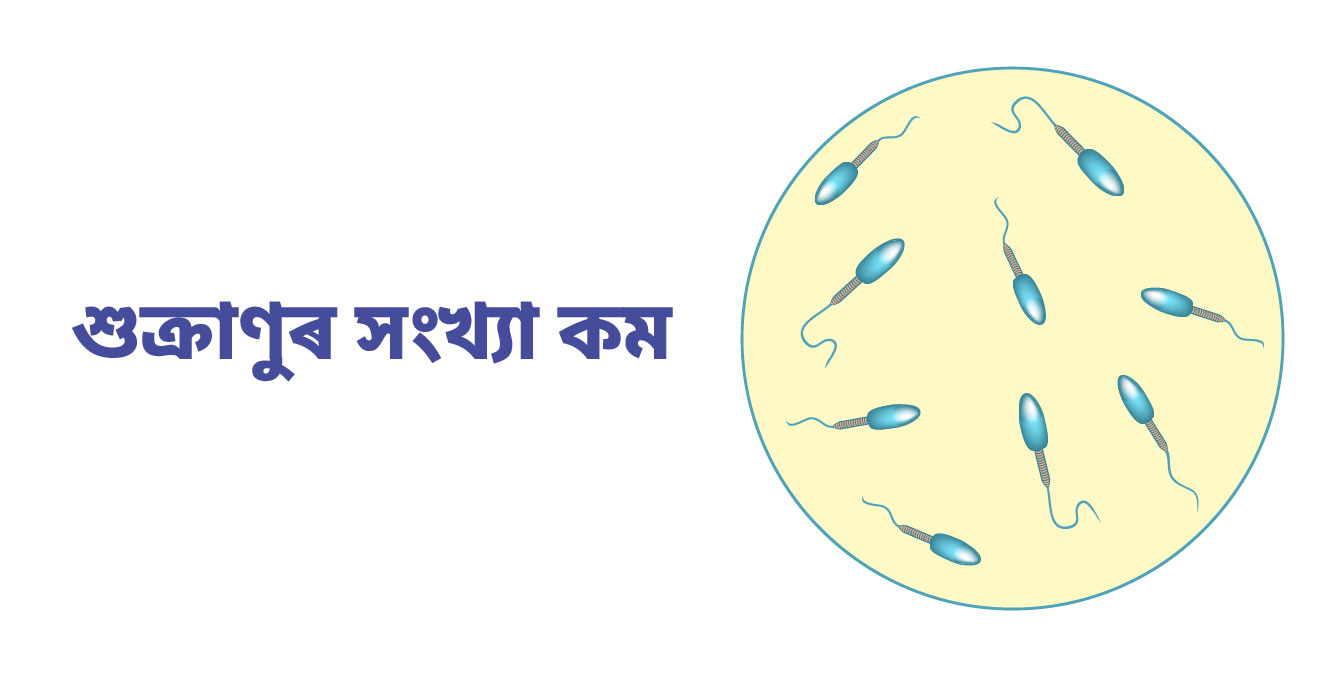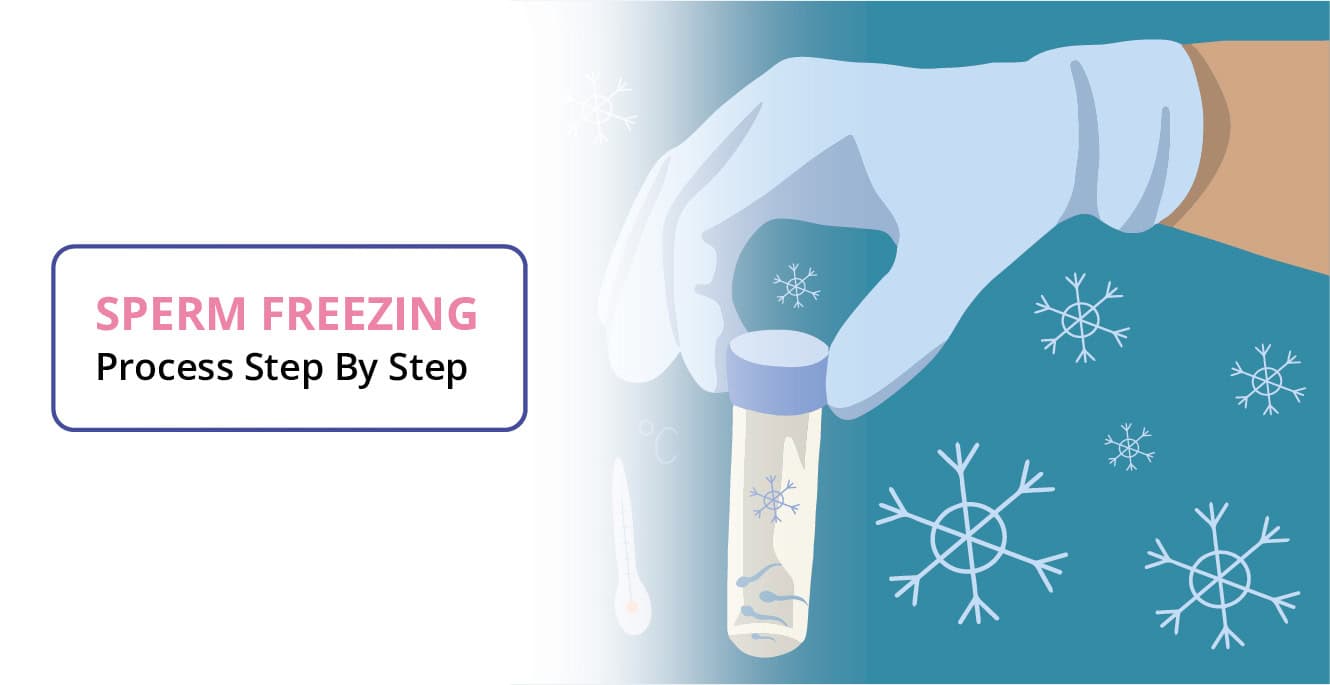What are the 5 Stages of IVF?
- Published on April 26, 2022

Table of Contents
In-vitro Fertilization (IVF)
In-vitro Fertilization is a type of assisted reproductive technology (ART) in which a woman’s eggs and a man’s sperm are combined outside the body in a petri dish (laboratory dish). One of the studies published in The Print, according to AIIMS, about 10-15 percent of couples in India are said to have fertility issues. Infertility can be caused by a variety of reasons, but the most common is the reduction in sperm count in men and a decrease in egg reserve in women.
Every day we are constantly fighting against the feeling of not being able to conceive. In today’s time, technology has advanced to a level where IVF can help couples increase fertility and make it feasible to assist infertile couples in conceiving. Therefore, In vitro fertilisation (IVF) is a procedure practised to aid in fertilization, help with fertility, or prevent genetic abnormalities.
The 5 Stages of IVF Treatment:
There are 5 stages of IVF treatment performed step by step based on the progression of one step by following it with another.
- Preparation for the cycle
For the IVF cycle, you and your partner will have to undergo testing. The tests performed are blood tests for both male and female partners, a pelvic exam and then a transvaginal ultrasound.
After all the tests have been conducted and reviewed by your fertility experts, they will suggest a course of birth control pills to start the cycle. The pills may help to decrease the chances of forming any cysts that could hinder the cycle.
- Stimulation of the Ovaries
The objective of an IVF cycle is to produce as many mature eggs as possible in order to enhance your chances of pregnancy. In the stimulation phase, injectable medicines are used for about 8 to 14 days during the IVF stimulation phase to stimulate the ovaries and generate more eggs. The stimulation phase is completed with an hCG ‘trigger shot’ a high-dose hormone injection that stimulates the growing follicles (structures that house the small eggs) to mature, triggering ovulation.
- Egg Retrieval
36 hours following the final trigger shot, visit the fertility clinic’s state-of-the-art Assisted Reproductive Technology (ART) lab for egg retrieval. The fertility experts will conduct an ultrasound to further examine the ovaries.
Transvaginal ultrasound aspiration is the most common technique used for retrieving eggs. To locate follicles, an ultrasound probe is placed into the vaginal canal. A needle is used to aspirate ovarian follicles, which is guided by transvaginal ultrasonography. The embryologist scans the follicular fluids for all viable eggs. Then a needle is inserted into each ovary for the egg retrieval process. After puncturing the ovary, the follicular fluid and eggs from each matured follicle will be drained. The fluid will be carefully transferred to an embryologist who will sift and identify each egg. It takes around 20-30 minutes to retrieve one egg.
- Embryo Development
Your embryologist starts the fertilisation procedure once the eggs have been retrieved, processed, and prepped. Fertilization can take place in two ways: Conventional fertilization and Intracytoplasmic Sperm Injection (ICSI).Embryo transfer is generally done three to five days following egg retrieval, either at your doctor’s office or a clinic.
- Transferring the embryo
The embryo transfer is a quick five-minute process that doesn’t require any anaesthesia. Your fertility expert will do a final checkup of the embryos the morning before the transfer process and further recommend which to transfer based on the overall quality and age(ideally at day 5-6) of the embryos. You and your fertility expert will discuss your cycle before the transfer and make the final choice on the number of embryos to use. The embryo (or embryos) are held in a little quantity of fluid in a syringe connected to the end of the catheter by the fertility expert. They then inject the embryo into your uterus using a syringe. An embryo will implant in the lining of your uterus around six to ten days following egg extraction if it is successful.
What factors contribute to male and female infertility?
There are various contributing factors that can result in infertility. However, the causes of male infertility and female infertility vary from each other:
Female Infertility
Infertility in a woman is defined as the inability to conceive after trying for at least a year or when a woman has had repeated miscarriages. Age, physical difficulties, hormone abnormalities, and lifestyle or environmental factors can all contribute to female infertility. Below mentioned are some of the causes of infertility that necessitate IVF
- Damaged or blocked fallopian tube
If the fallopian tube is damaged, it prevents the sperm from reaching the egg for fertilization in the fallopian tube or prevents an embryo from reaching the uterus for pregnancy.
- Ovulation disorders
Ovulation problems are a common cause of female infertility. It refers to a group of diseases that affect a woman’s endocrine system, which regulates the hormones and ovulation patterns (the release of an egg by the ovary throughout the menstrual cycle). Irregular or missing periods, as well as trouble becoming pregnant, are the two most prevalent signs of abnormal ovulation.
- Pelvic adhesions
Pelvic adhesions develop when two pieces of tissue in the pelvic area are stuck together due to a layer of scar tissue. Surgery, infections (including Pelvic Inflammatory Disease or a burst appendix), or endometriosis can all cause an inflammatory reaction, which can lead to adhesion development. Pelvic adhesions can damage organs including the bladder, uterus, ovaries, and fallopian tubes.
- Endometriosis
Endometriosis is a term derived from the endometrium, the inner lining of the uterus. Every month, the endometrium thickens and renews itself in preparation for pregnancy. If there is no pregnancy, the endometrium sheds during menstruation. If a pregnancy is achieved, it means that the embryo has attached itself to the endometrium. Endometriosis is a painful condition in which tissue that lines the uterus starts to grow outside of it. Endometriosis can affect any part of the body, but it often affects the lower abdomen or pelvis, as well as the ovaries and fallopian tubes. Due to endometriosis, a patient can feel discomfort in the lower abdomen, pain during menstrual cycles, pain during sexual intercourse, and difficulty in conceiving.
Male Infertility
Fertility in men is a complicated process and so for pregnancy, there should be
- The production of healthy sperm
- Sufficient amount of sperm in the semen
- The potential of sperm to pass through the female reproductive system in the right manner
Any issue that arises in these above-mentioned functions leads to male infertility.
Some major causes of male infertility are:
- Ejaculation dysfunction
Ejaculatory dysfunction is the man’s inability to ejaculate semen at the moment of sexual intercourse. One of the most prevalent reasons for male infertility is ejaculatory dysfunction. The problem in ejaculation can be caused due to various factors such as diabetes, spinal problem, any heavy medication and surgeries in the bladder, prostate or urethra.
- Hormonal Imbalances
Infertility in men can be caused by problems with the pituitary glands, thyroid, or adrenal glands. In males, many factors can contribute to low testosterone and other hormonal problems.
- Varicocele problem
Varicocele is a disorder in which the veins in the scrotal sack enlarge. The quality and quantity of sperm might be affected by an increase in scrotal temperature. Varicocele can be recognized by the following symptoms, a lump in one of your testicles, swollen scrotum, noticeably swollen or twisted veins in your scrotum, persistent and recurrent ache in your scrotum.
- Health and lifestyle causes
Excessive consumption of alcohol, tobacco, and other substances such as marijuana, as well as any other heavy prescriptions, might have a negative impact on a man’s fertility. Cocaine usage might affect the quality and quantity of sperm for a short period of time. Excessive drinking can diminish testosterone levels, resulting in erectile dysfunction and a reduction in sperm production.
Unexplained Infertility
Unexplained infertility is defined as infertility without any known or specific cause. Unexplained infertility is most frequently caused by low egg or sperm quality, as well as uterine or fallopian tube abnormalities that aren’t detected through standard fertility tests.
Bottom Line
IVF has helped women in various phases and helped them become pregnant for decades. If you’re thinking about IVF, you should first take care of your health both physical and mental. You may have tried other approaches to resolving your infertility issues. Our specialist can assist you with every area of advanced reproduction to help you realise your dream of having a child.
For the effective fertility treatments and the best outcomes, book your appointment today.
Related Posts
Written by:
Dr. Apeksha Sahu
Consultant
Dr. Apeksha Sahu, is a reputed fertility specialist with 12 years of experience. She excels in advanced laparoscopic surgeries and tailoring IVF protocols to address a wide range of women’s fertility care needs. Her expertise spans the management of female reproductive disorders, including infertility, fibroids, cysts, endometriosis, PCOS, alongside high-risk pregnancies and gynaecological oncology.
Ranchi, Jharkhand
Our Services
Fertility Treatments
Problems with fertility are both emotionally and medically challenging. At Birla Fertility & IVF, we focus on providing you with supportive, personalized care at every step of your journey towards becoming a parent.Male Infertility
Male factor infertility accounts for almost 40%-50% of all infertility cases. Decreased sperm function can be the result of genetic, lifestyle, medical or environmental factors. Fortunately, most causes of male factor infertility can be easily diagnosed and treated.We offer a comprehensive range of sperm retrieval procedures and treatments for couples with male factor infertility or sexual dysfunction.
Donor Services
We offer a comprehensive and supportive donor program to our patients who require donor sperm or donor eggs in their fertility treatments. We are partnered with reliable, government authorised banks to source quality assured donor samples which are carefully matched to you based on blood type and physical characteristics.Fertility Preservation
Whether you have made an active decision to delay parenthood or are about to undergo medical treatments that may affect your reproductive health, we can help you explore options to preserve your fertility for the future.Gynaecological Procedures
Some conditions that impact fertility in women such as blocked fallopian tubes, endometriosis, fibroids, and T-shaped uterus may be treatable with surgery. We offer a range of advanced laparoscopic and hysteroscopic procedures to diagnose and treat these issues.Genetics & Diagnostics
Complete range of basic and advanced fertility investigations to diagnose causes of male and female infertility, making way for personalized treatment plans.Our Blogs
To Know More
Speak to our experts and take your first steps towards parenthood. To book an appointment or to make an enquiry, please leave your details and we will get back to you.




































